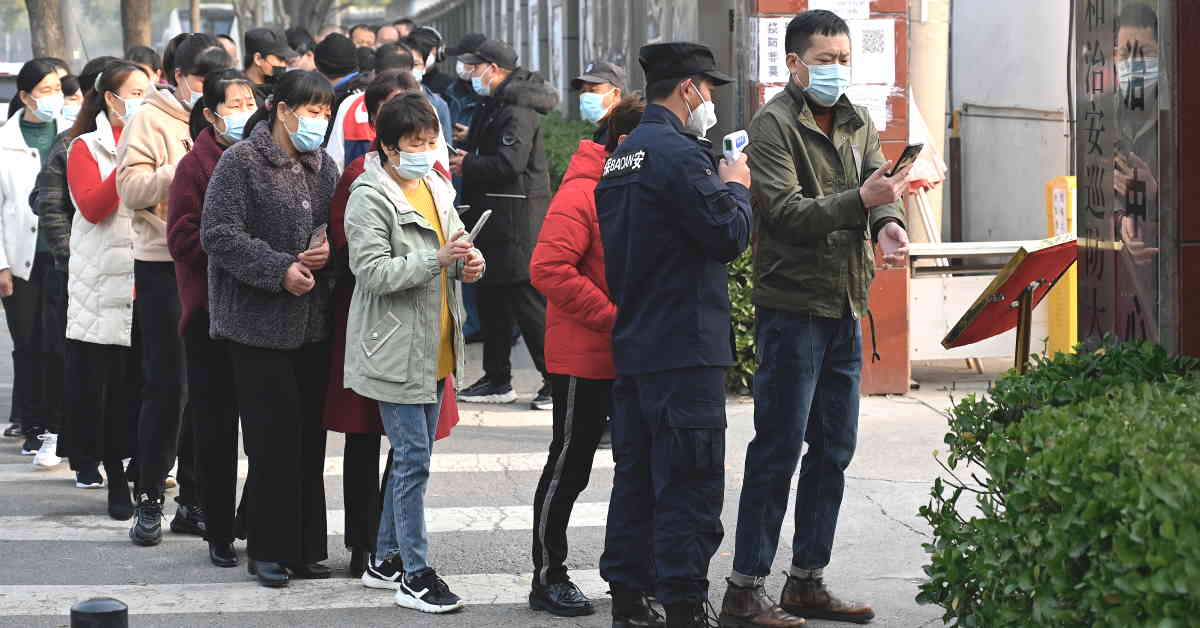Beijing introduced new COVID-19 curbs on Saturday to stamp out a "serious" outbreak as the Chinese capital maintains its strict zero-tolerance policy, with less than 100 days before it hosts the Winter Olympics.
China's leading epidemiologist Zhong Nanshan said Saturday that authorities could contain a nationwide outbreak within a month – but also warned the "pandemic cannot be eradicated within a short period of time".
The outbreak has hit at least 14 of China's provinces and millions have been tested in the past week.
The situation is "serious and complex" and the epidemic "is still developing rapidly", Mi Feng, spokesperson for the National Health Commission, told a press conference Saturday.
In Beijing, authorities ordered all cinemas closed until 14 November in the capital's Xicheng district, which lies west of Tiananmen Square and is home to over a million people.
China announced 59 locally transmitted virus cases Saturday – the highest since mid-September –including two cases in Beijing linked to a tourist group infected in the north of the country.
While the number is low compared to daily case counts in other countries, authorities are pushing Beijing to contain the virus ahead of the Games, which begin on 4 February.
The city – which hosted the Summer Olympics in 2008 – will become the first to host both events.
The new centre of the outbreak is 650 kilometres from Beijing, in the city of Erenhot, on the border with Mongolia.
Some six million Chinese people in cities where the virus has been detected are now under travel restrictions.
The country's nationwide train operator will suspend or limit routes in affected areas, state news agency Xinhua reported Saturday.
Entry into numerous regions is now conditional on a negative test result – particularly for those coming from affected areas.
Friday saw around half of flights leaving Beijing's capital cancelled, with authorities urging people not to leave the city unless absolutely necessary. They also asked Beijing-ers to postpone their weddings. – AFP
